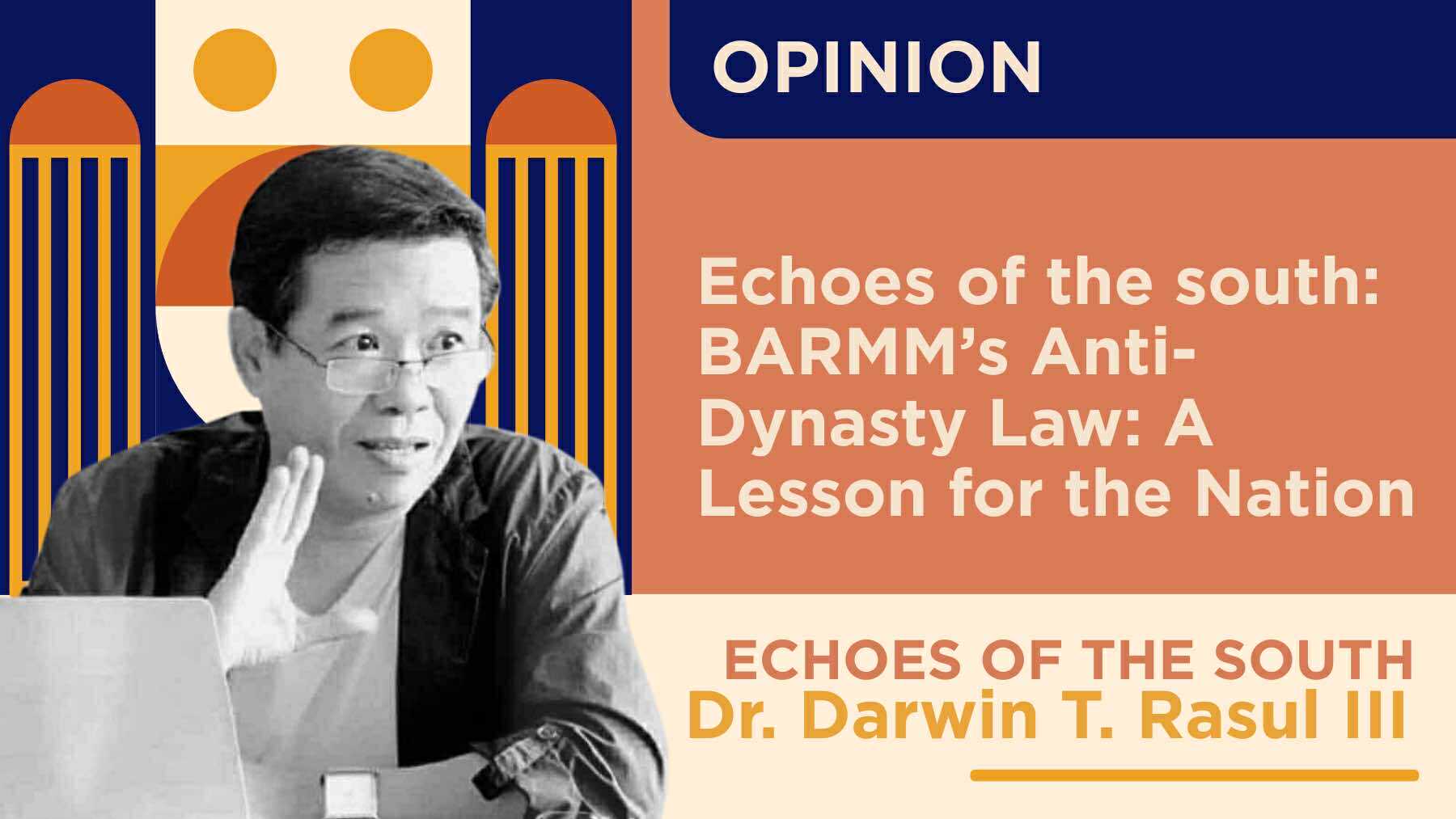The Bangsamoro Transition Authority (BTA) Parliament has taken a bold step that the rest of the Philippines has avoided for nearly four decades: it passed an anti-political dynasty law, with implementing rules now in place. This is historic in a region where clan-based politics have been dominant for generations.
The framers of the 1987 Constitution anticipated such a reform. Article II, Section 26 declares: “The State shall guarantee equal access to opportunities for public service, and prohibit political dynasties as may be defined by law.” The catch is that Congress must define it. Yet Congress, dominated by political clans, has never done so. By contrast, BARMM has acted on its own constitutional and legal mandate.
In the Bangsamoro Electoral Code, Section 9(d) disqualifies nominees if they are related within the second civil degree by consanguinity (blood) or marriage to another candidate in overlapping offices. Section 45(g) of the Bangsamoro Local Governance Code mirrors this ban. Constitutional lawyers point out that this makes BARMM the only region with a working anti-dynasty framework, proving that the idea is both legally possible and enforceable.
Enforcement will take full effect in the 2028 elections. That gives political families a transition period, but also a firm deadline. By then, siblings, parents, children, and spouses can no longer easily trade places in elected office. Observers note that this makes the Bangsamoro the "first real laboratory" for dismantling dynastic control in the Philippines.
Political analysts, however, recognize that not all clans are alike: some families have served with competence and integrity, while others with abuse and corruption. But the law cannot, and should not, make such distinctions. A credible anti-dynasty policy must apply to all families equally, or none at all. The rule is not about punishing “bad” clans but about ensuring that access to public service is open to everyone.
This is why many governance experts now argue that Congress should take its cue from BARMM. If the Bangsamoro government can enact and operationalize an anti-dynasty ban, so can the rest of the country. What BARMM has done is to give flesh or an enabling law to a constitutional command that Congress has long ignored.
BARMM’s legislative authority to pass such a law is firmly grounded in Republic Act No. 11054, or the Bangsamoro Organic Law (BOL). Article XVI, Section 2 of the BOL explicitly empowers the Bangsamoro Parliament to enact laws that promote democracy, transparency, and accountability, consistent with the 1987 Constitution. Acting under this mandate, the BTA passed the Bangsamoro Electoral Code (BEC), officially BTA Act No. 35, on March 9, 2023. The Code’s Section 9 (d) provides that:
“No person shall be nominated as a candidate if he or she is related within the second civil degree of consanguinity or affinity to any incumbent elected official of the Bangsamoro Government, or to any person seeking election to any elective position within the same parliamentary district, city, or municipality, during the same election.”
Meanwhile, Section 45 (g) of the Bangsamoro Local Governance Code (BTA Act No. 49, enacted May 2024) reinforces this prohibition by barring relatives up to the second civil degree from holding or succeeding to elective local government posts in the same area or overlapping jurisdiction. Together, these provisions create a full legal shield against dynastic succession, something the national government has never achieved.
Legal scholars such as former Commission on Elections Chair Christian Monsod, one of the framers of the 1987 Constitution, have long argued that an anti-dynasty law is “an indispensable constitutional duty” to ensure equal access to political opportunity. Similarly, the Institute for Political and Electoral Reform (IPER) and Ateneo Policy Center have described BARMM’s anti-dynasty framework as “a pioneering model of constitutional compliance,” demonstrating that the political will to legislate reform can emerge even in a post-conflict region.
In fact, BARMM’s legislative move is anchored in Republic Act No. 11054, which empowers the regional government to enact electoral and local governance codes consistent with the Constitution. Under Section 2, Article XVI of the BOL, the Bangsamoro Parliament is expressly authorized to pass laws that strengthen democratic institutions and prevent monopolization of political power. Thus, its anti-dynasty provisions are not only political statements, but are constitutionally sound acts of autonomy.
By instituting a two-degree limit on familial candidacies, the BARMM law effectively bars situations where, for instance, a governor’s child runs for vice governor or a mayor’s spouse for a neighboring town’s seat. It prevents “alternating dynasties” that exploit election cycles to maintain control. Political scientists see this as a landmark test case that could determine whether anti-dynasty laws are administratively viable nationwide.
Ultimately, the Bangsamoro’s reform provides the rest of the Philippines with a living model of constitutional compliance and democratic renewal. The autonomous region, long stigmatized for clan wars and private armies, is now leading the country in implementing a principle enshrined in the nation’s highest law. If BARMM succeeds, the constitutional prohibition against political dynasties will cease to be a dead letter, and may finally become a national norm rather than an unrealized promise.
#WeTakeAStand #OpinYon #OpinYonNews #EchoesOfTheSouth

